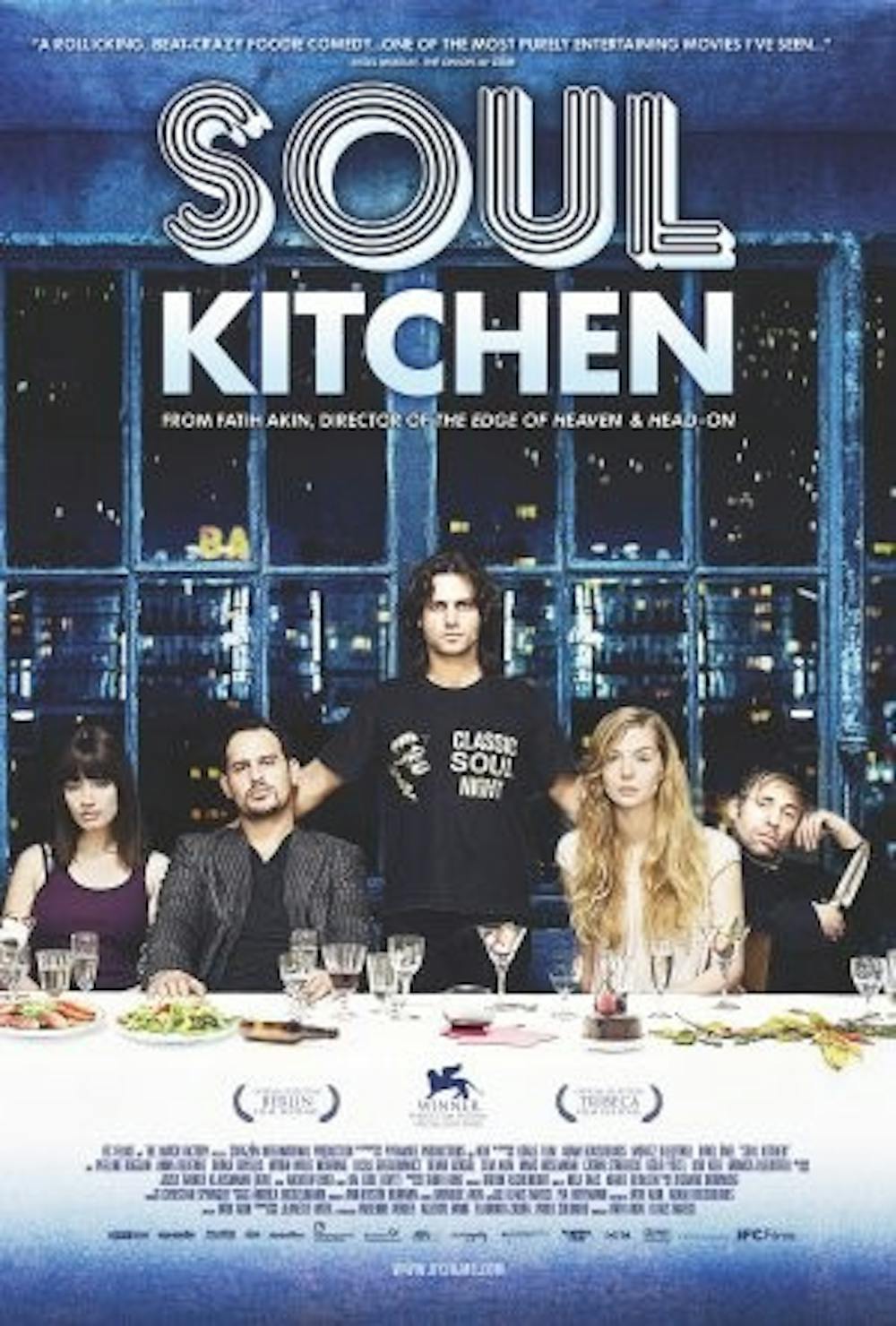“Soul Kitchen” kicks off with funk and grace — it ends with credits that rise beyond the colorful glory of funk poster art.
In between it’s rollicking. It has the insights of hunger and the pleasures of satiation, like a film that feeds itself. If it were much better it would devour the world.
The young director, Fatih Akin, is often called Germany’s best. I haven’t always agreed, finding him unforgivably superficial at times, but with “Soul Kitchen,” I’m sold. This is the work of a distinguished director who may have equals, but doesn’t likely have any superiors.
Akin made a name for himself telling the story of the immigrant experience in Germany. With modern fairy tales and intricate melodrama he made movie after movie about how his people, the descendents of Turkish guest workers, fit into to his homeland’s social tapestry.
But “Soul Kitchen” shows Akin’s broader horizons. The film’s hero is a Greek man named Zinos, played by Akin collaborator and script co-writer Adam Bousdoukos.
Zinos is the proud owner of a greasy spoon that serves the working class of Hamburg, an industrial but scenic port city in northern Germany. With his girlfriend leaving for China and city officials impounding his sound system for unpaid back taxes, Zinos’ life and career are poised to collapse.
This balance between floating and sinking continues for the entire movie, driven along by the addition of a haute cuisine chef (Birol Ünel) and Zinos’ criminal older brother (Moritz Bleibtreu) to the staff.
What builds up as joyous farce climaxes as black humor, all to end in a moment of beautiful self-actualization. It’s a damn funny movie, but it’s much more than a simple screwball comedy.
Under the direction of Akin, “Soul Kitchen” is a truncated version of a Gesamtkunstwerk, or “total artwork,” the coveted goal of many an aesthetician since the days of Richard Wagner.



